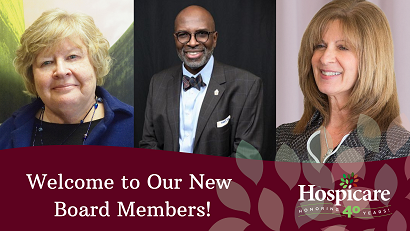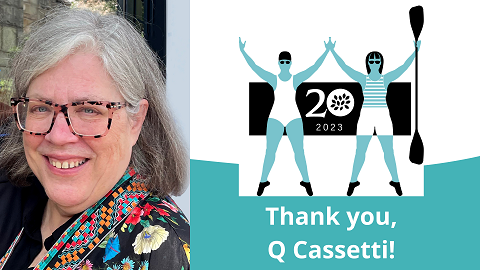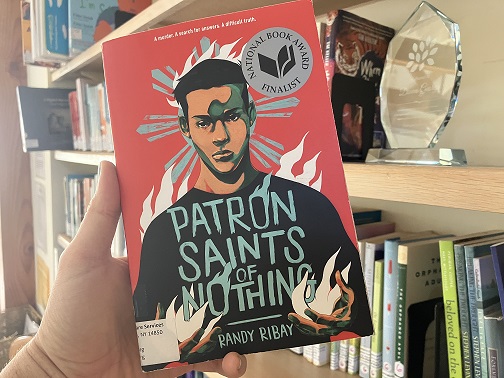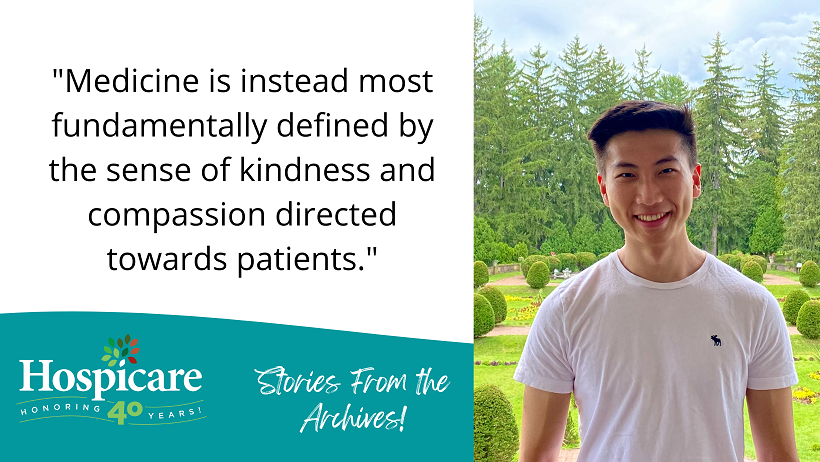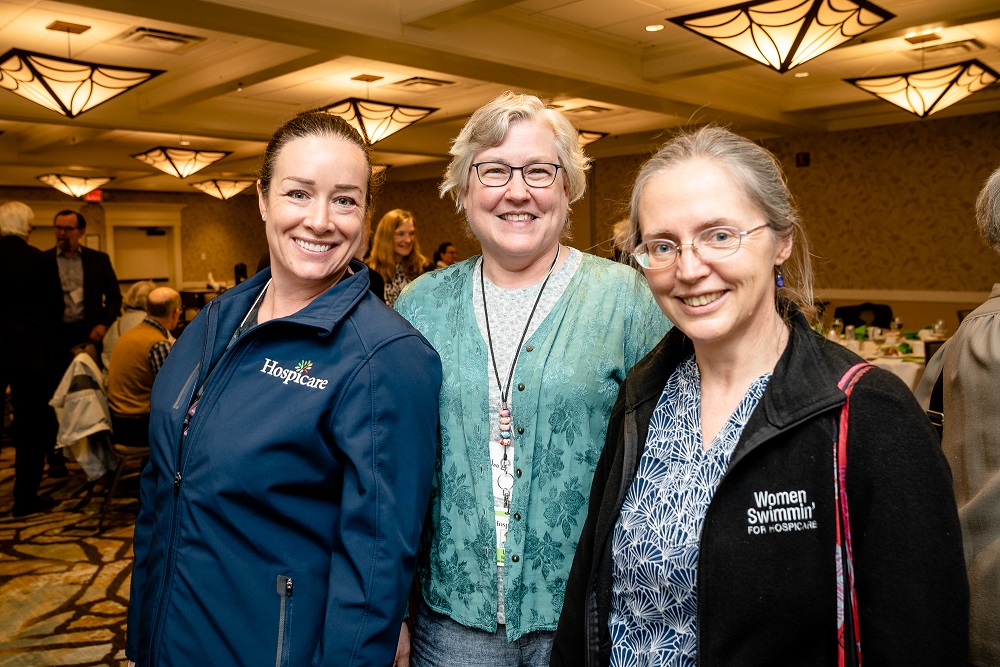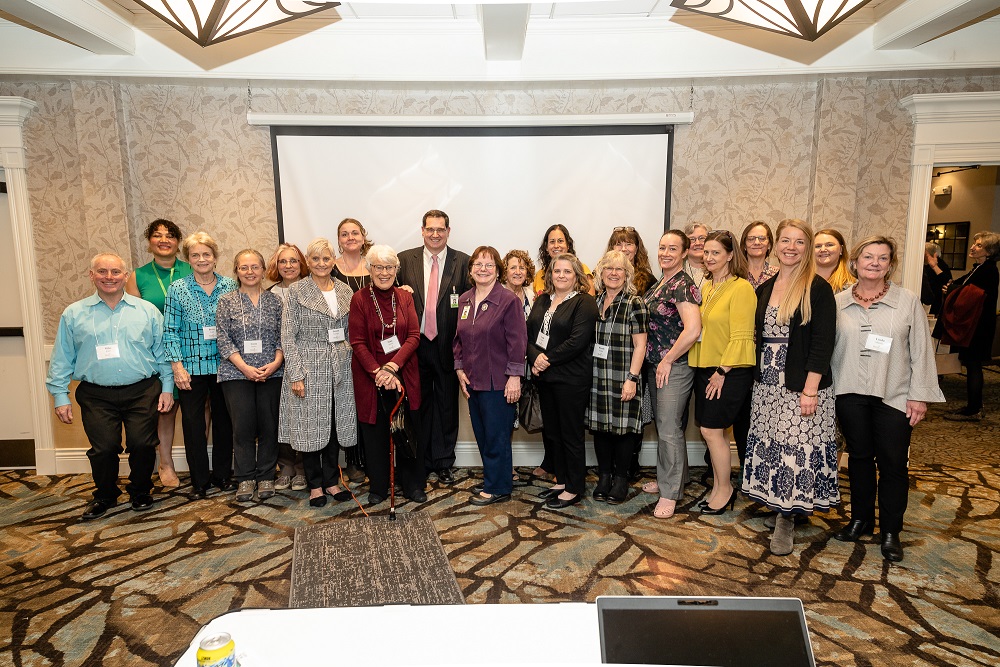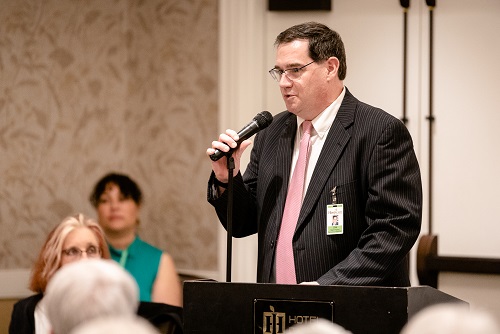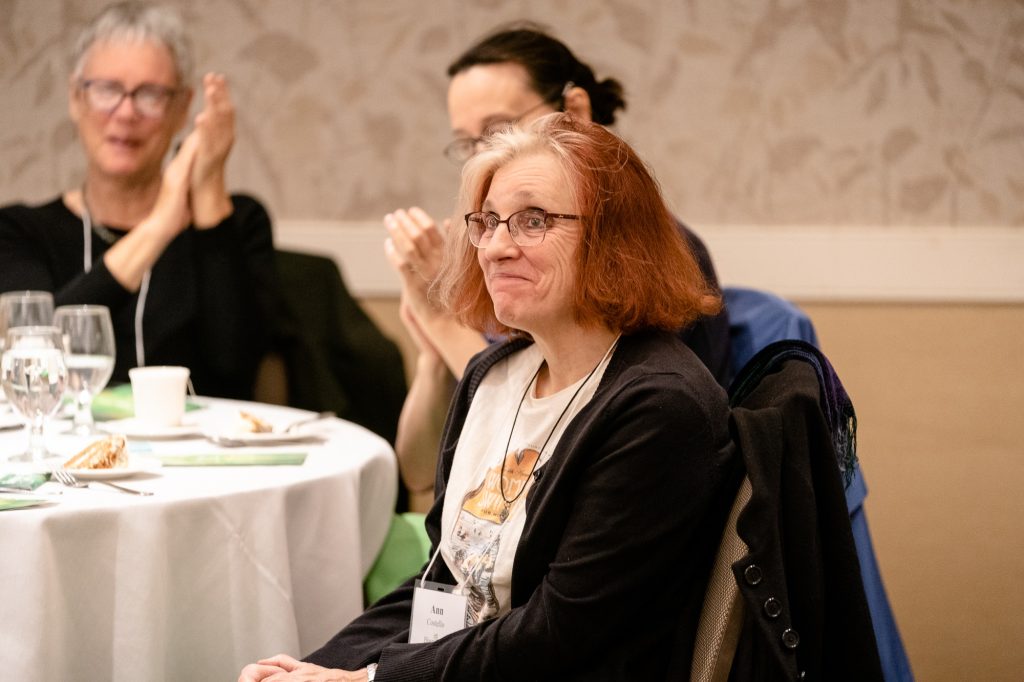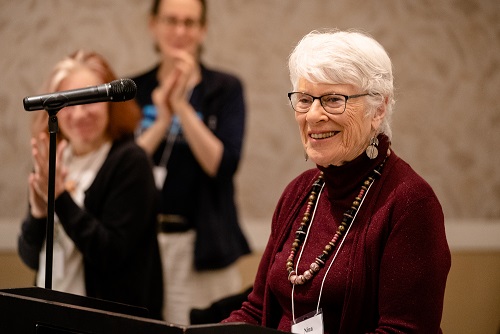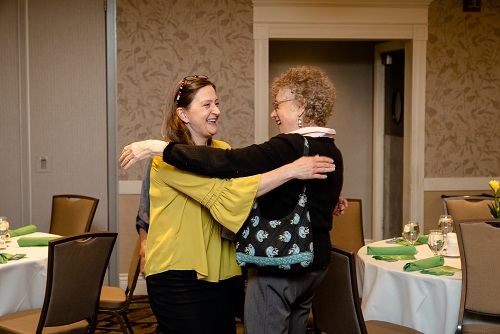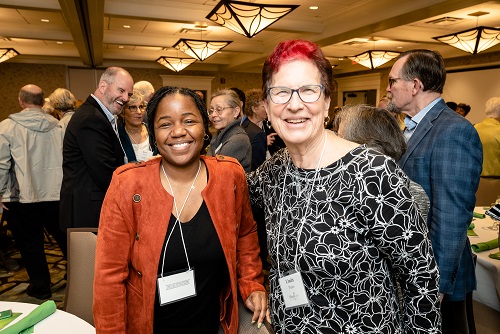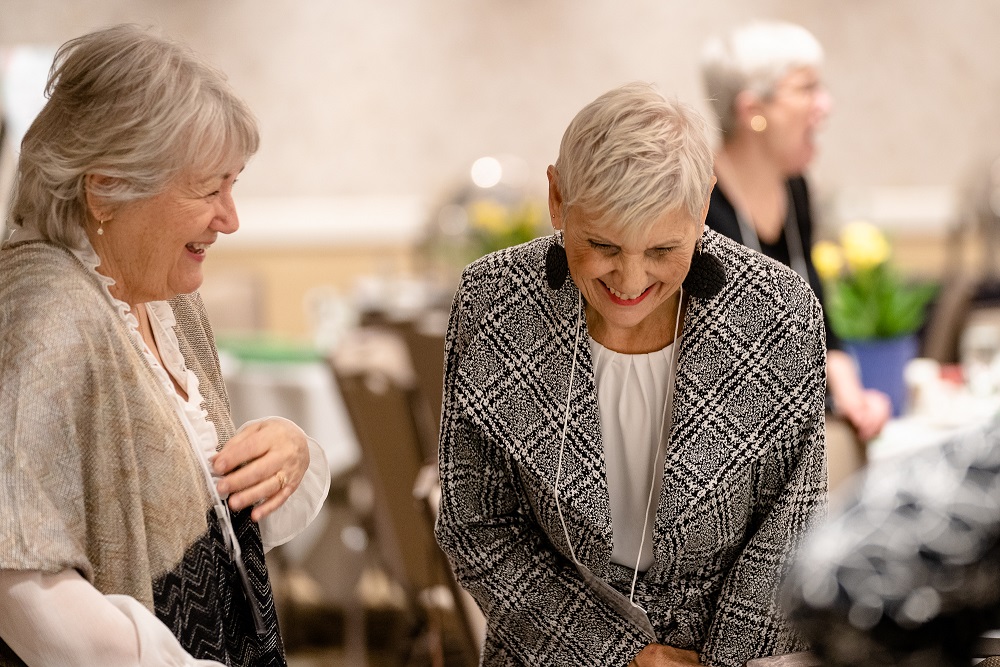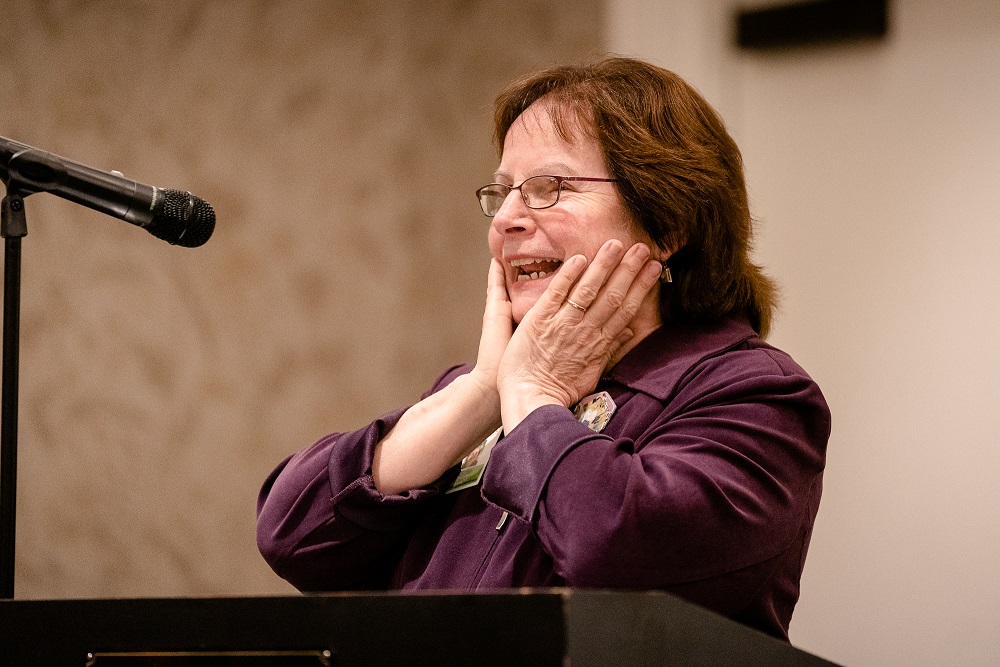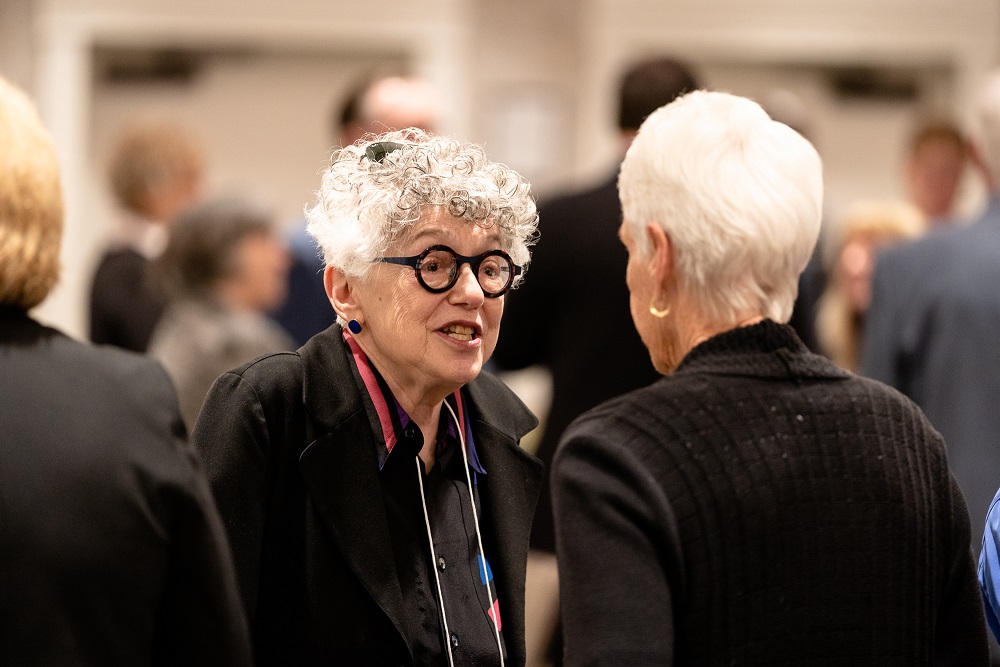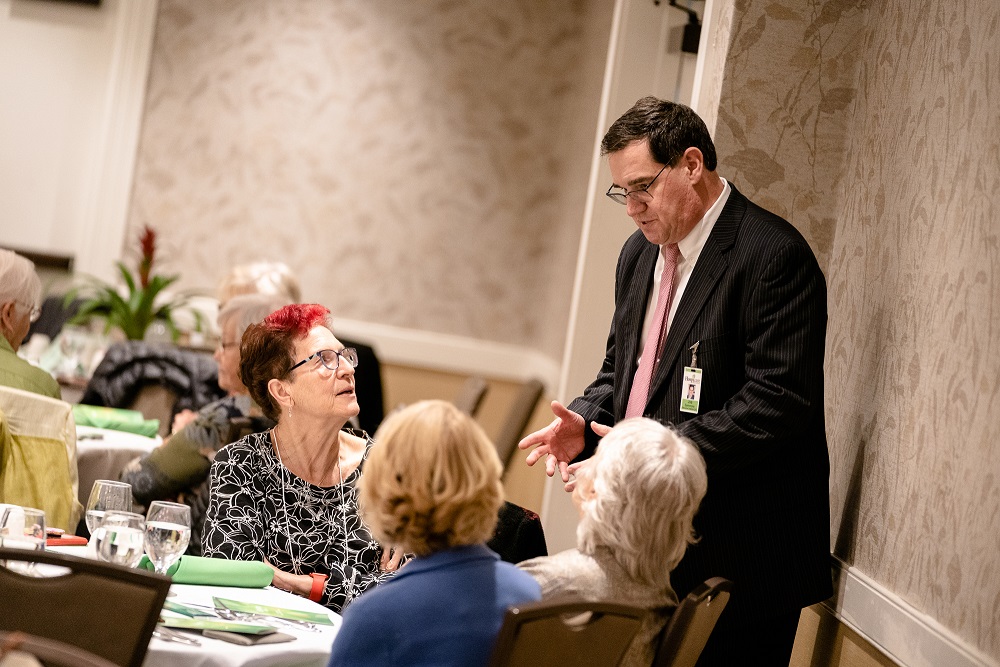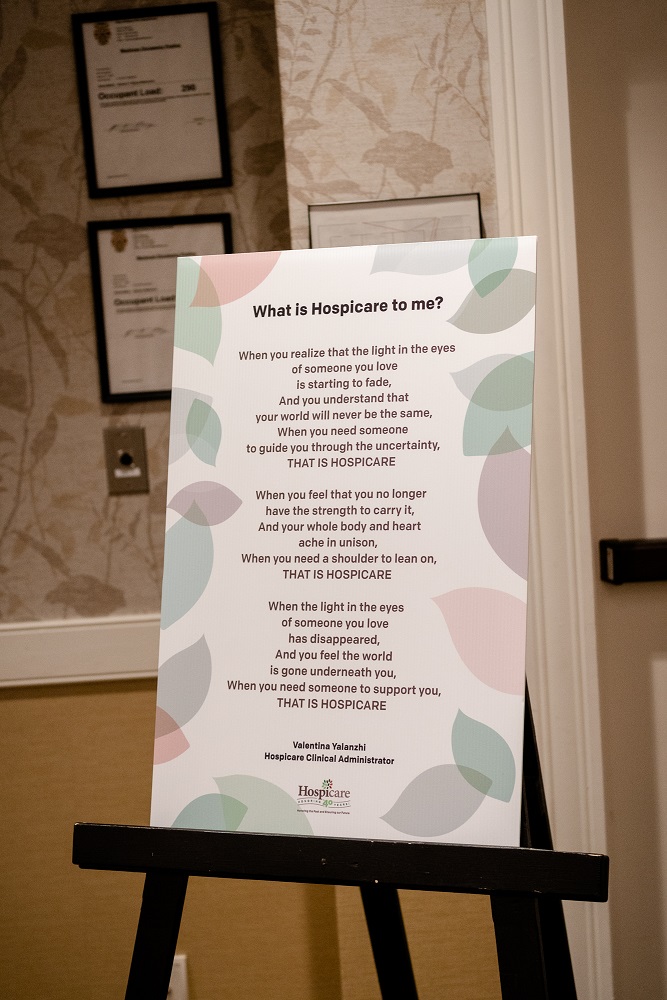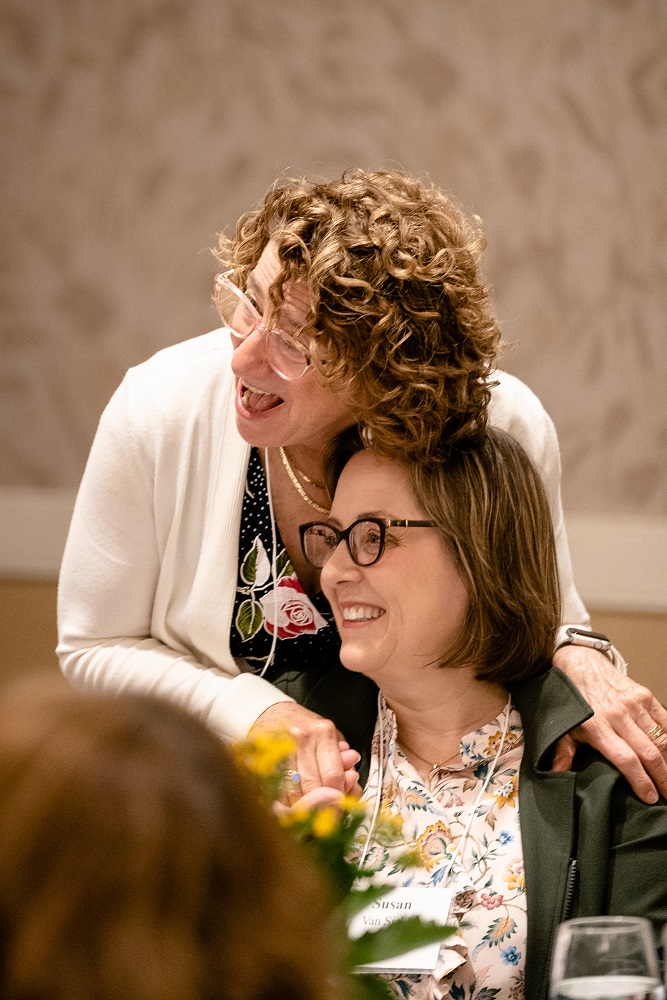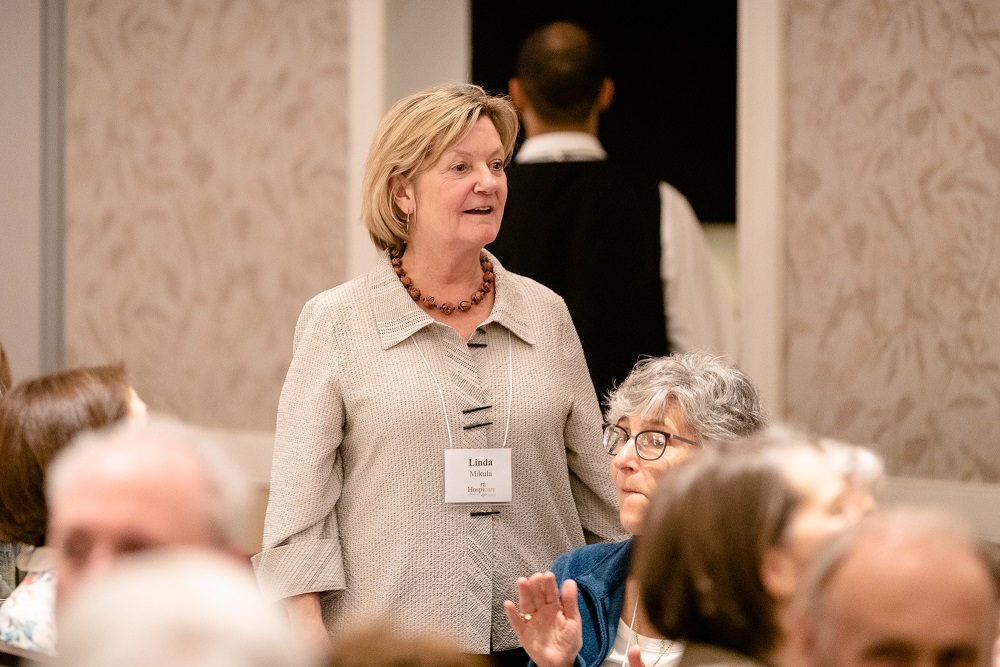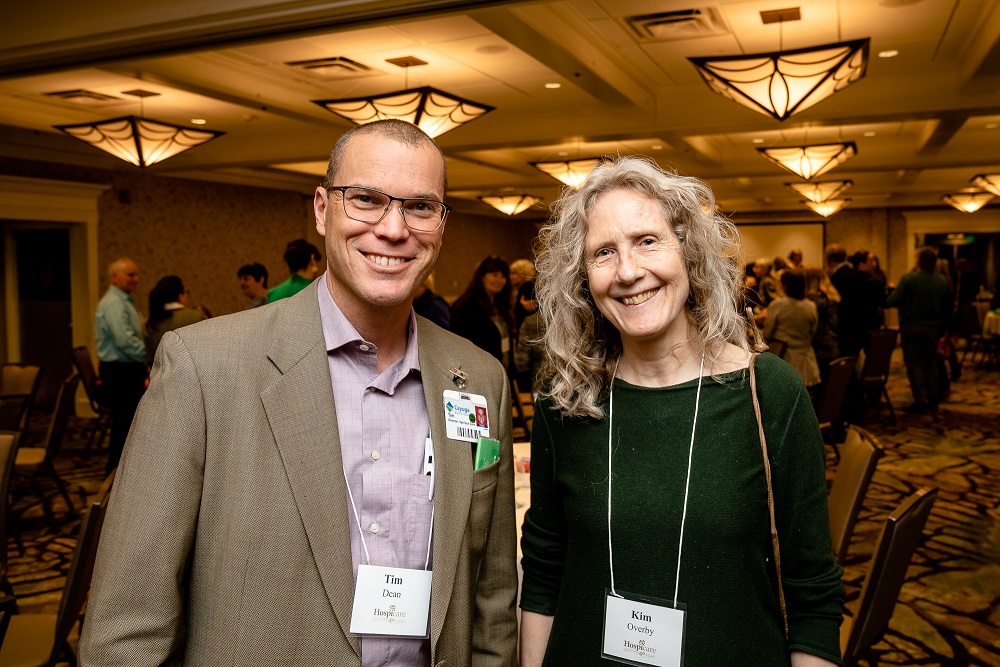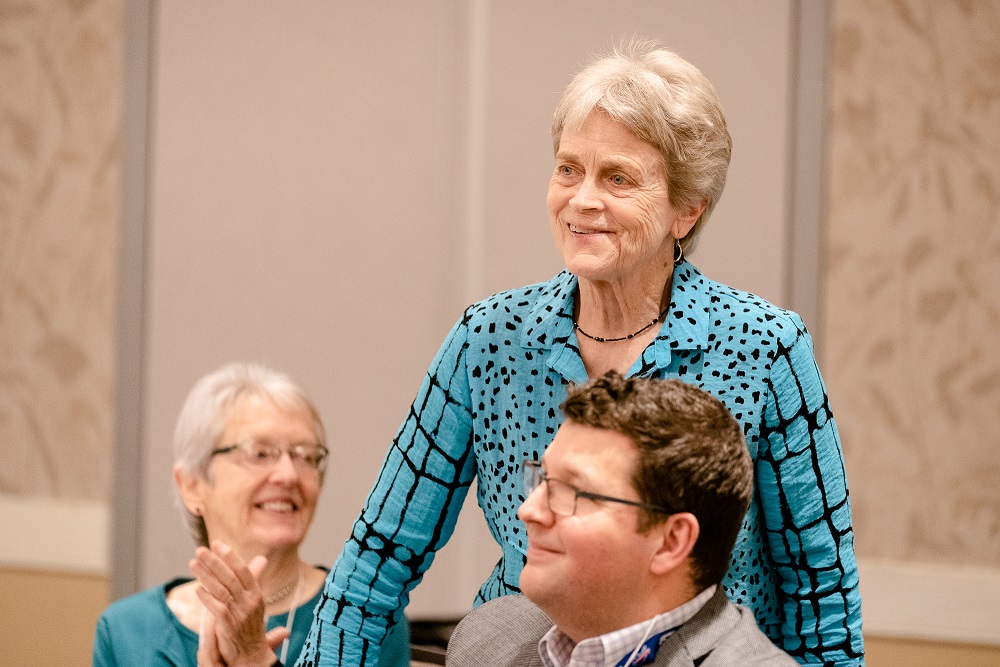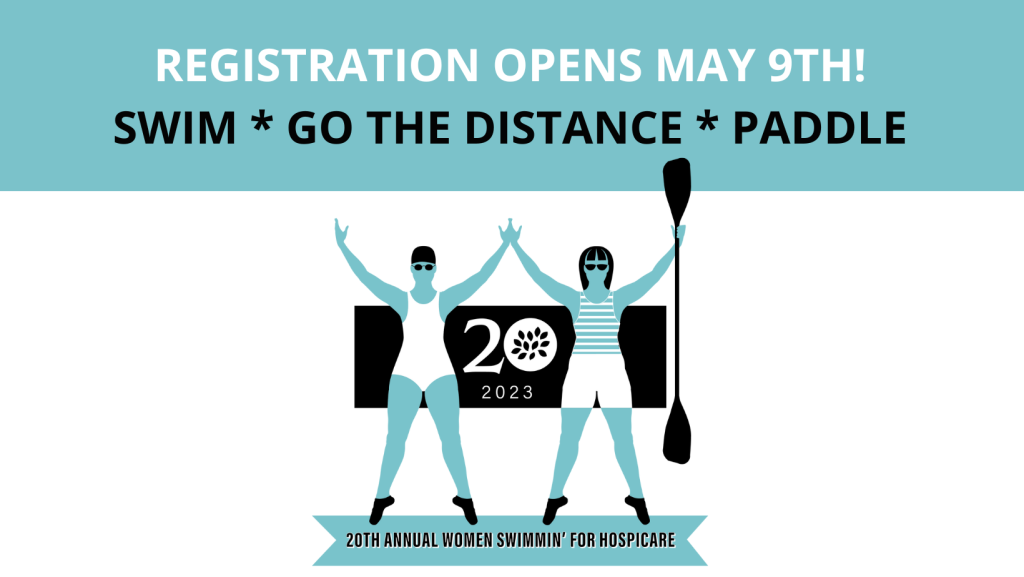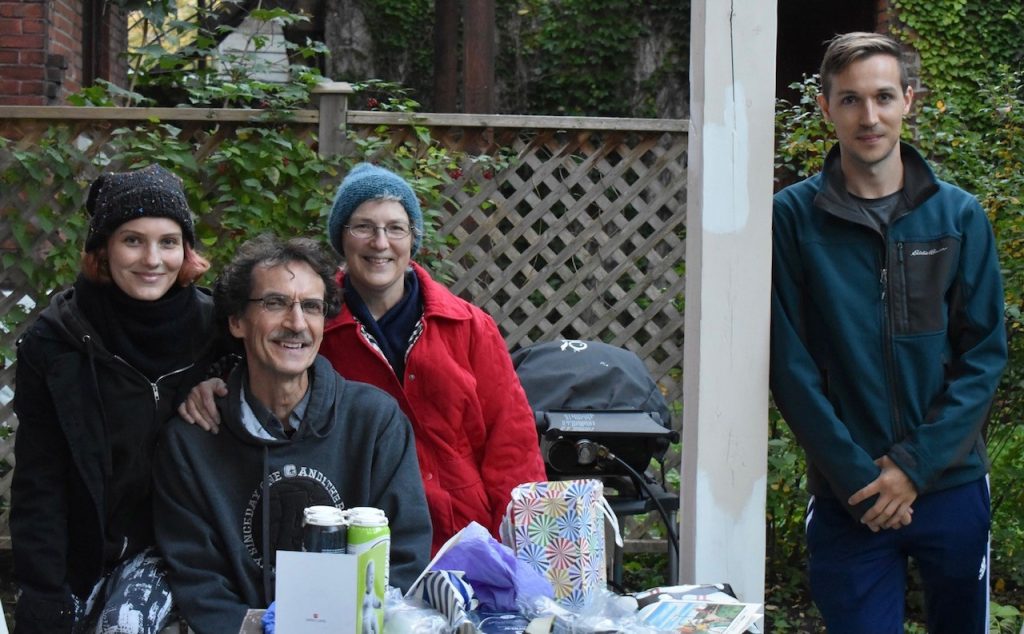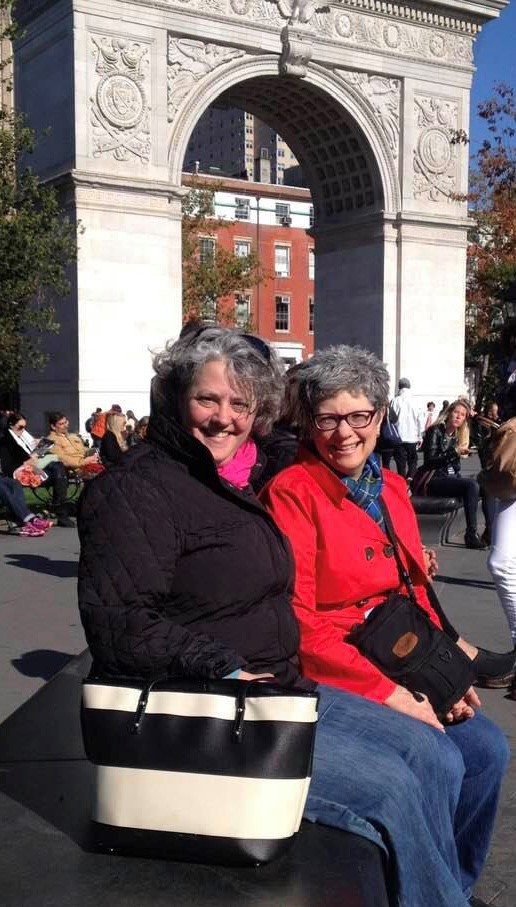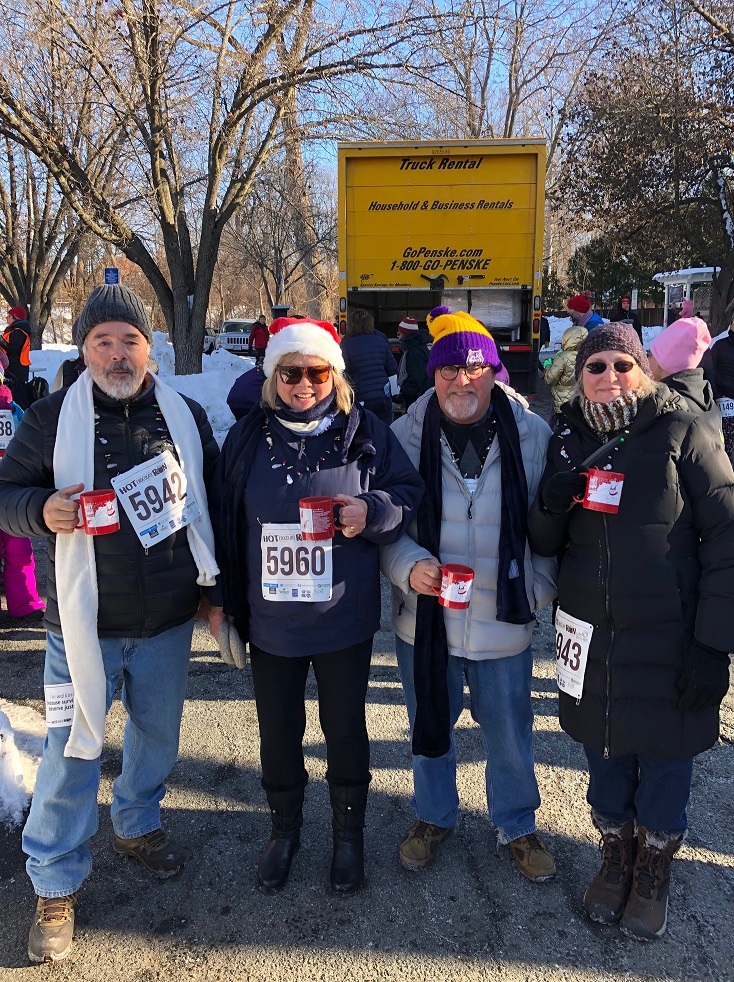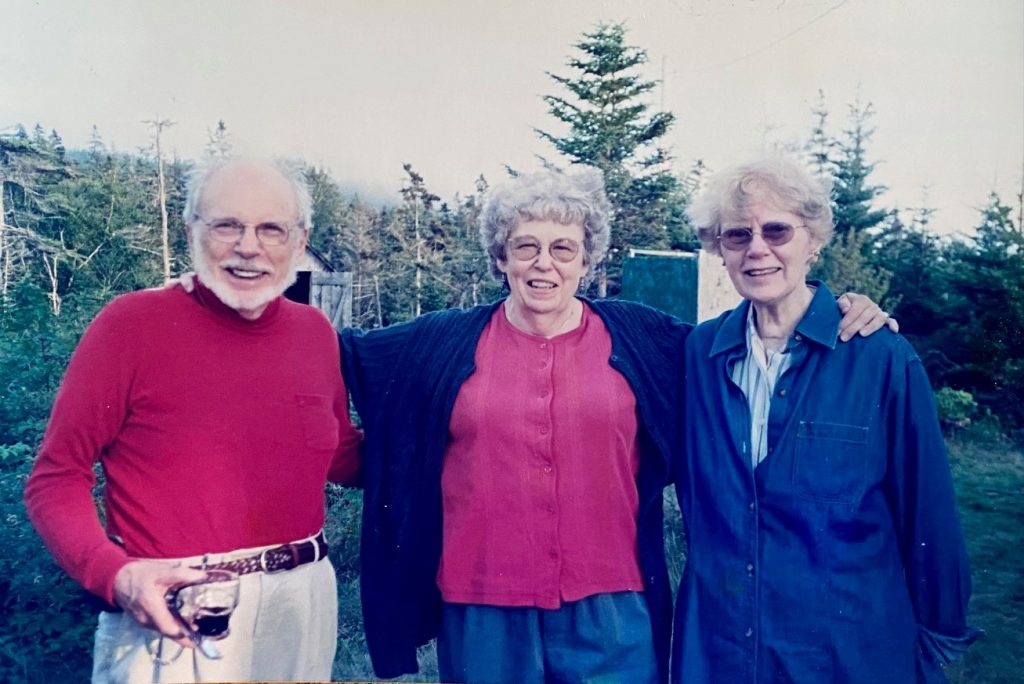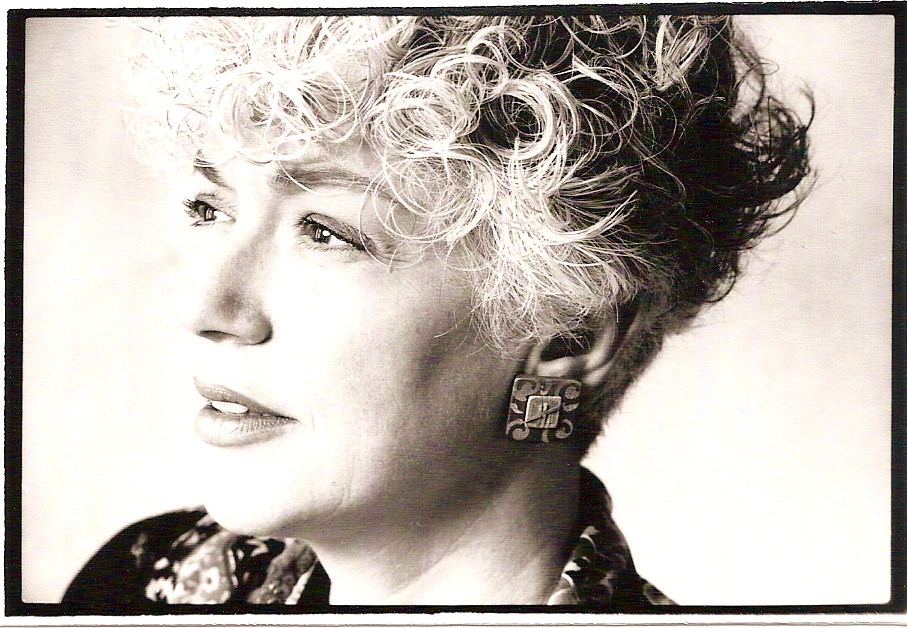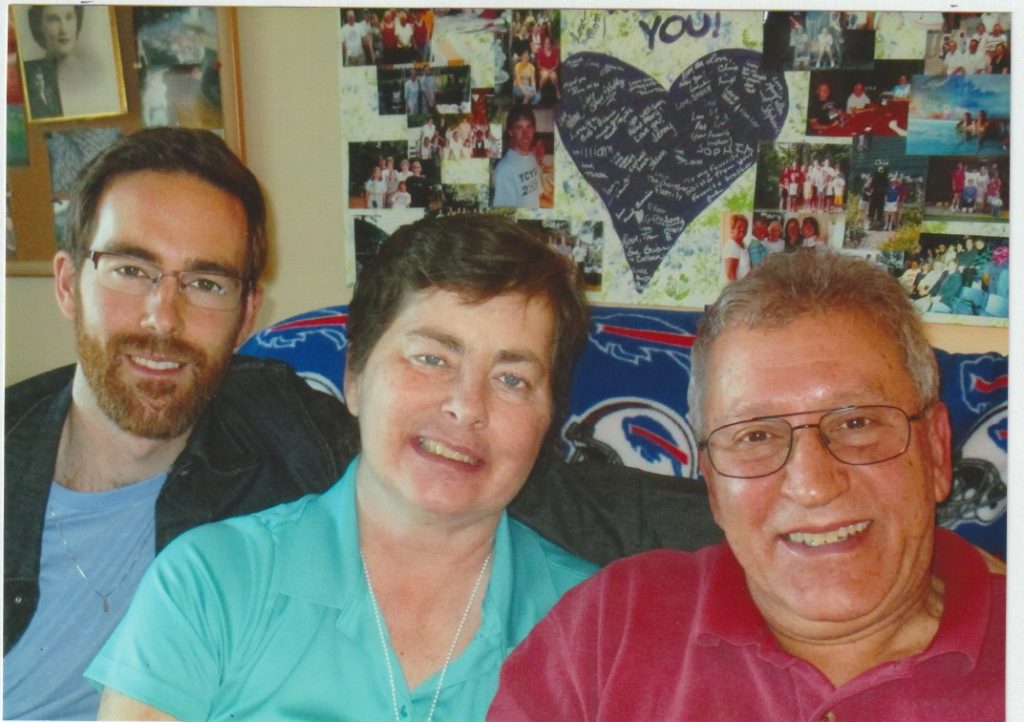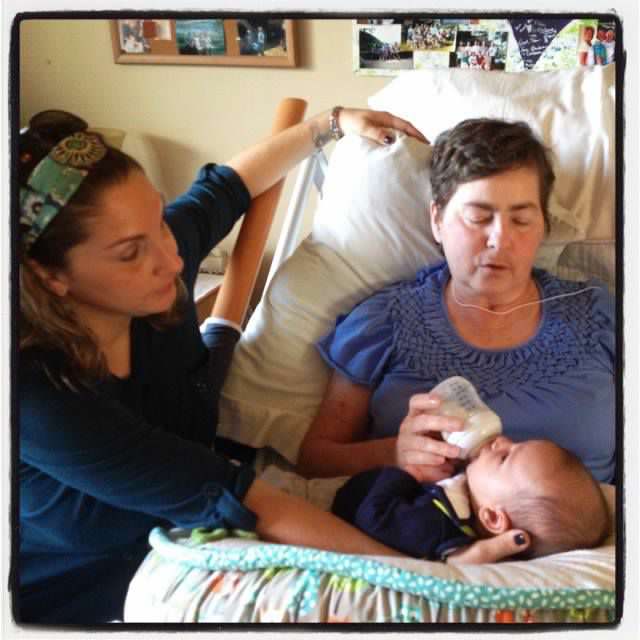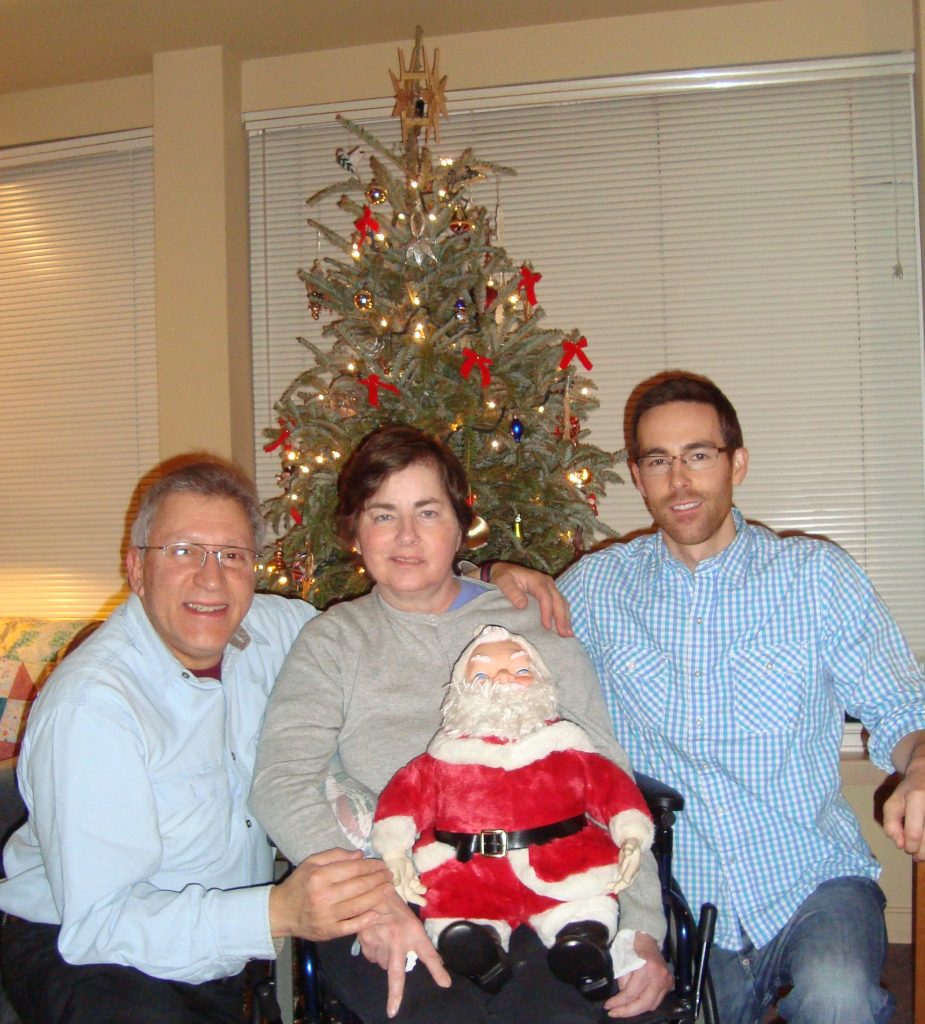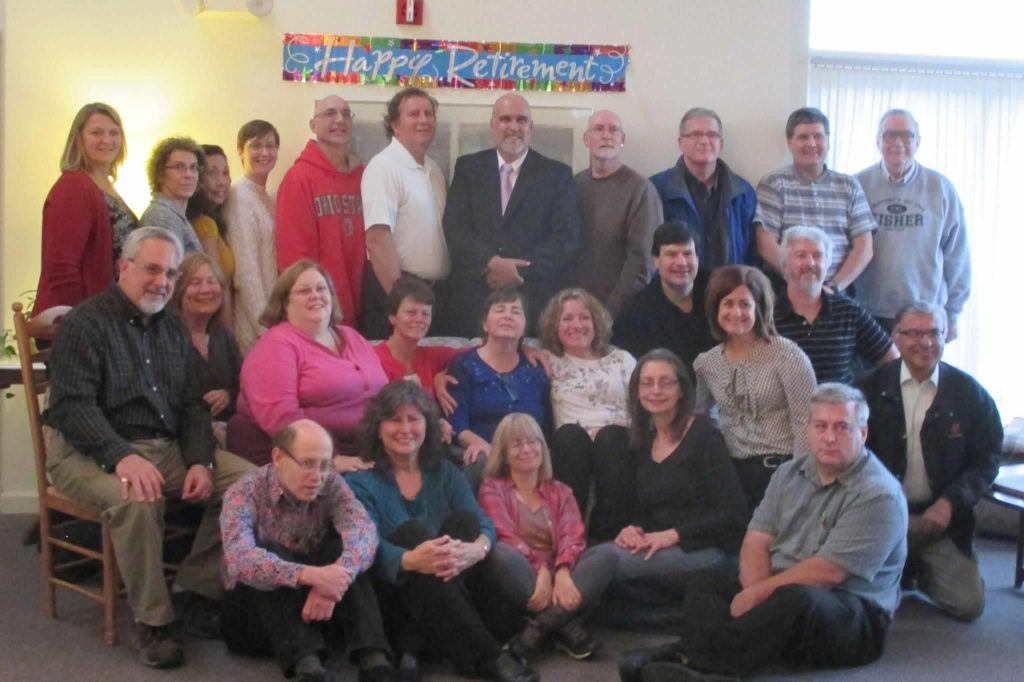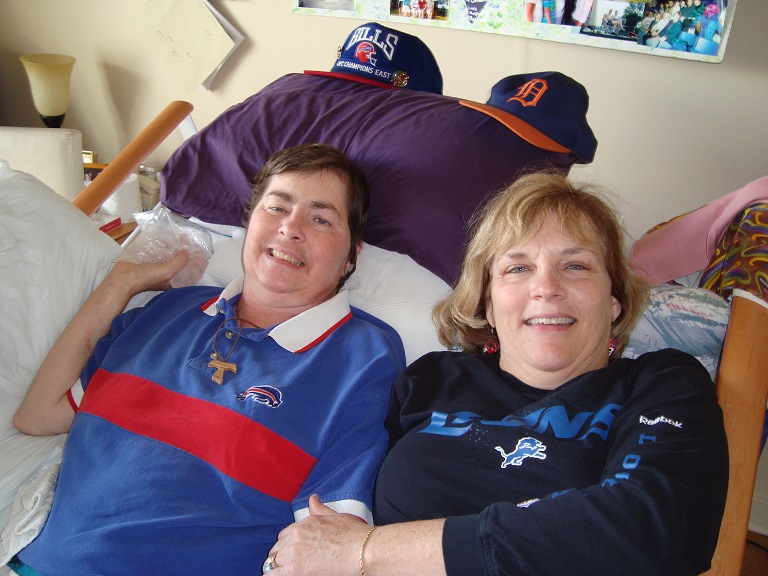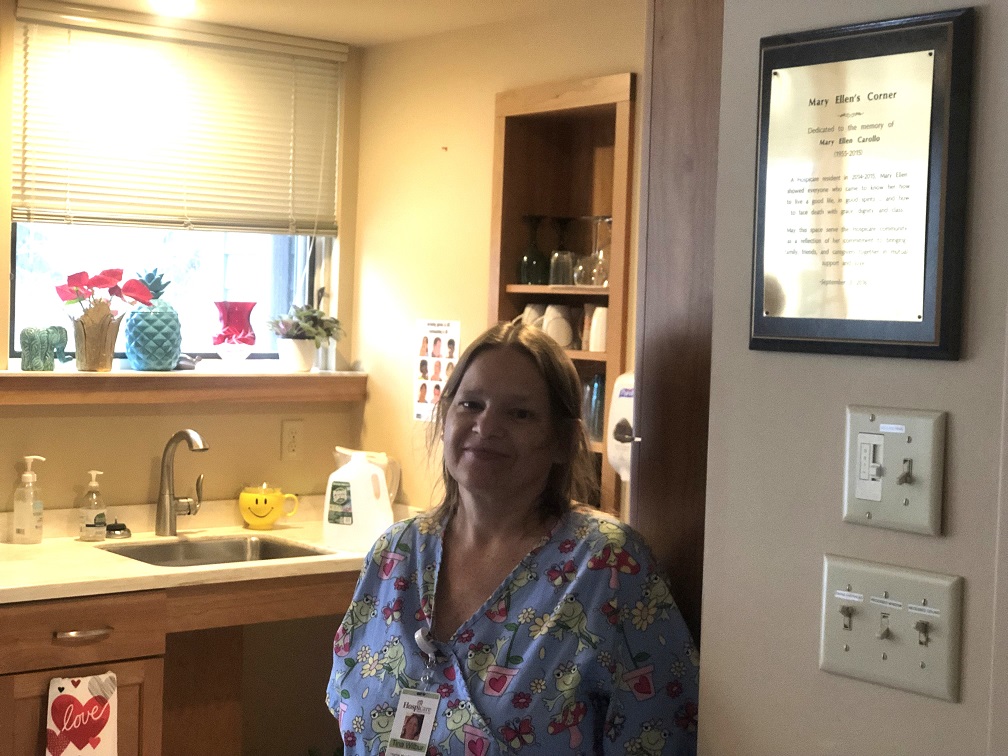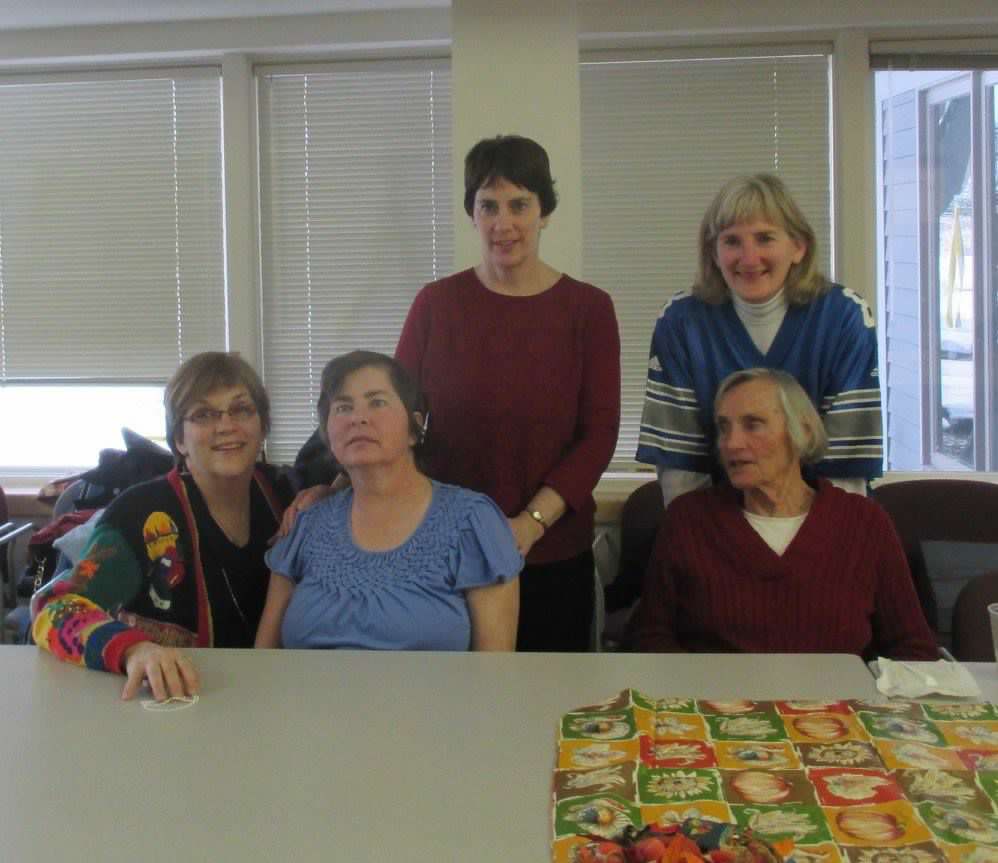Inspired by the help Hospicare gave to her first husband, which allowed him to have a more peaceful final few weeks of life, Susan H. Murphy decided last December to make a major gift to support Hospicare’s work. She was one of the first to answer Hospicare’s call in 2023 for “major gifts” of $5,000 and above.
Murphy, who retired in 2016 from her longtime role as Cornell University VP of Student and Academic Services, wished she called upon Hospicare sooner. She said, “Had we partnered with Hospicare sooner, Gerry might have avoided uncomfortable transports to the hospital.”
“There comes a time in our life,” explained Hospicare’s Director of Patient Services Leah Gugino, “when a person’s comfort and peace of mind take precedence over pursuing treatment. Our staff at Hospicare provide compassionate care and support to both the patient and their caregivers so everyone can be as comfortable as possible.”
In many cases, being a hospice patient is the only way to ensure that your wishes around Emergency Room visits are followed.
“In an ideal world,” said Hospicare’s Executive Director Joe Sammons, “most of us would turn to hospice services at some point, because we want to spend the end of our lives comfortably at home, surrounded by the people we love and doing the things we love doing as long as we can.”
“Unfortunately, there are multiple factors that sometimes keep us from asking for or getting the hospice help we need and deserve,” Sammons added, saying that the biggest factor keeping some people away from hospice is lack of understanding of what hospice actually is.
“Hospicare gives every patient a whole care team that includes nurses, home health aides, spiritual care coordinators, and counselors,” Gugino explained. “Again and again, our patients and their families tell us what a relief and comfort it is to be taken care of by us.”
In 2023, Hospicare raised $1.5 million dollars, including $647,000 in Women Swimmin’ gifts, $370,000 in bequests from grateful patients, $145,000 in major gifts, and around $400,000 in other gifts and grants.
“Generous friends like Susan Murphy are helping us ensure the agency’s longevity,” Joe Sammons said.
Betsy East, co-chair of Hospicare’s signature annual fundraiser Women Swimmin’ and, along with her spouse Elizabeth Bixler, a major donor herself, said of Murphy, “Susan is one of the most generous people I know! She donates not only her financial resources, but a huge amount of her time, talent, and wisdom to the Ithaca Community. We long ago lost count of the many boards she has served on and the lives she has made better through her contributions.”
Major gifts like Murphy’s are growing Hospicare’s rainy-day fund and helping the agency to hire and retain the best nurses, chaplains, social workers, and care managers. In addition, gifts to Hospicare pay for the free bereavement care, including one-on-one grief counseling, the agency provides to hundreds of people every year.
“We are so deeply grateful to Susan and other leadership donors for the care they are helping to provide to their neighbors in the region,” said Sammons.
